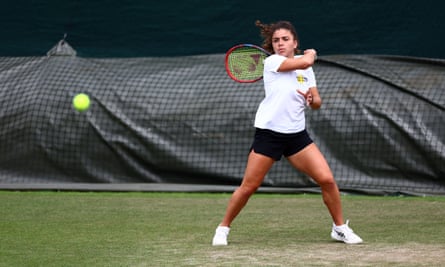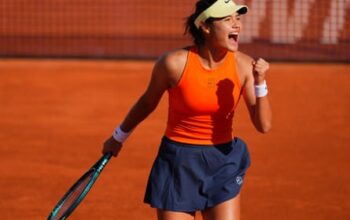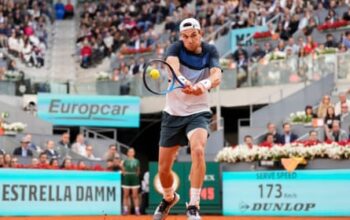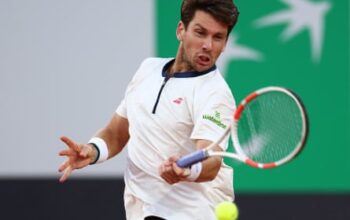In the first few months of last season, things seemed to be coming together again for Barbora Krejcikova. Two years earlier, having put herself on the path to a hall-of-fame career with her doubles results alone, the Czech had shocked the world by winning the women’s singles title at Roland Garros.
A sophomore slump followed as she wrapped her head around her new status, but by the end of 2022 she seemed to have finally settled down. Krejcikova ended that season by triumphing in a classic battle against Iga Swiatek, the world No 1, in the Ostrava final. Then in February 2023 she won the Dubai WTA 1000 title in spectacular style, defeating the top three players in succession – ending with another win over Swiatek. Two of Swiatek’s four career defeats in finals have come at the hands of Krejcikova.
Still, she was not happy. Even though she has been building one of the most brilliant tennis careers among active players, winning everything in women’s doubles alongside Katerina Siniakova – the four grand slam titles, Olympic gold and the WTA finals – alongside her singles excellence, Krejcikova’s public profile was – and still is – about as low as it gets for a major singles champion.
As the dominant narrative on the WTA became about how the new top three – Swiatek, Aryna Sabalenka and Elena Rybakina – were leading the tour, she was not in the conversation: “I want to be mentioned as well,” she told WTA Insider last year. “I want to be recognised as well because I think I deserve it. I’ve had a lot of success on the tour and I just don’t get the credit.
“I don’t know if this kind of motivation is a good motivation,” she said on Thursday after upsetting Rybakina in the Wimbledon semi-finals. “I think the results on the court are better motivation. To win the matches is something that I was focusing on.”
On Saturday, Krejcikova will step out on to Centre Court to face Jasmine Paolini for the Wimbledon title. A win would leave little doubt about her status as one of the best players of her generation.
Last year was also reflective of the turbulent results that have underscored Krejcikova’s career. After reaching the quarter-finals of the Australian Open this year, she won only two matches in five months until Wimbledon amid struggles with illnesses, injuries and poor form.
But on her day, Krejcikova is a breath of fresh air in an era of one-note attacking baseliners on the ATP and WTA tours. Her game is so easy on the eye; while her groundstrokes are produced with long, flowing swings, her hand-eye coordination and timing are so brilliant that even on faster surfaces she is rarely rushed. Krejcikova also has a precise first serve, and her heavy topspin forehand generates wicked angles and can tear apart most defences.

Still, it is the rest of the game that separates her from other players. The Czech possesses a deep toolbox of shots; not only does she have the weapons to punch back against the many enormous shotmakers, she has the guile and variety to diffuse their power.
after newsletter promotion
Over the past few weeks, those skills have been key to her success. Against three of the biggest ball strikers – Danielle Collins, Jelena Ostapenko and Rybakina – Krejcikova has disrupted their booming groundstrokes with low, skidding slices, redirecting their pace and keeping them guessing by mixing in dropshots and net forays. The way she worked her way into Thursday’s semi-final and Rybakina’s head, after the Kazakhstani led 5-1, was a masterclass in how to disrupt an opponent.
A completely different matchup awaits in the final against Paolini, who will look to frustrate Krejcikova with her defence and determination. Krejcikova will have to dictate in order to win. Paolini is one of the great revelations of 2023, an even later bloomer who has found her way to the top at 28.
At the beginning of this year, the notion that Paolini, an improving player but still barely inside the top 30, would win a WTA 1000 title and reach a grand slam final was unfathomable. That the Italian has followed her win on the fast hard courts in Dubai and her final on the clay courts of Roland Garros by reaching the Wimbledon final on grass is even more surprising.
Paolini arrived in the grass season having never won a main draw match on grass, a surface that did not seem to suit her attritional, defence-based style. But she has risen to the challenge, at times ridden her luck – such as when Madison Keys injured herself while serving for the match in the fourth round – and she has faced even the most nerve-racking moments with a beaming smile. Both players will return to Centre Court on Saturday with everything on the line as they try to close out the fortnight as an unlikely champion.


